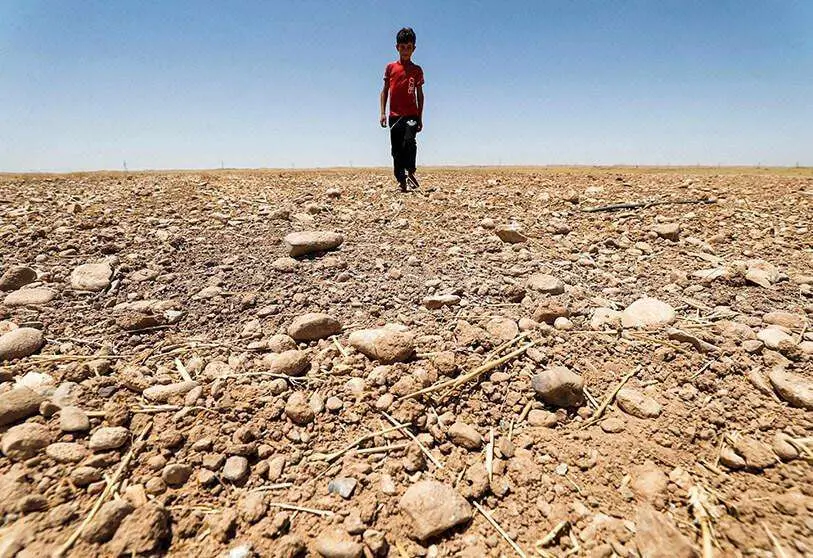Turkey and Iran, key players in Iraq's water crisis

The Middle East has a serious water problem, and this is nothing new. The problem of having 6.3 per cent of the world's entire population and only 1.4 per cent of the world's usable water leaves a situation that is hardly sustainable. Almost 70 years ago, only three Arab countries were suffering the consequences of a water crisis, but now, that number has risen to 11. And what is really worrying is that, according to experts, if current policies are not changed, this number could rise to almost 20 countries by 2025.
Currently, the country that is suffering the most from the water crisis is Iraq, but in order to solve it, two important factors must be addressed; the first is to understand the causes that have led the country to this situation, and the second is to carry out a major change in current policies. The British think tank Chatham House titled a report on this problem with the emphatic title: "Don't solve Iraq's water problem by using an old policy". According to the group, Iraq was in a good water position thanks to the Tigris and Euphrates rivers until 1970. After 1970, however, the country lost about 40 per cent of its water.

This loss was largely due to the policies of neighbouring countries, with Turkey standing out above the rest. According to the Al Jazeera think tank Al Jazeera, the main culprit for Iraq's running water shortage was the Turkish cut-off of the Tigris and Euphrates water flows. However, natural causes also played an important role in this crisis as high temperatures and low rainfall rates also had a serious impact on Iraq's reservoirs, from which around 8 billion cubic metres of water evaporated.

During 2021, Iraq's Minister of Water Resources, Mahdi Rashid Hamdani, said that water from Turkey through the Tigris and Euphrates had decreased by 50 per cent. The Zab River in the Kirkuk region has also dropped by nearly 70 per cent, and tributaries and rivers such as those reaching the Darbandikhan Dam (located in northern Iraq) have reached zero. And another important aspect that Minister Hamdani referred to is the modification of the course of other important rivers that flow into Iraq, such as the Sirwan River. This is where Iran comes in as the culprit for these practices that deplete Iraq's water reserves.
The Islamic regime has also changed the course of rivers in the border areas of Diyala and Khanaqin so that they flow into Iran, rather than into Iraqi territory, as they originally did. According to research by the Mediterranean Institute for Regional Studies, Iraq is losing most of its water resources. In 1933, water entering Iraq via the Euphrates River from Turkey and Syria amounted to 30 billion cubic metres. Now, however, the amount is less than 9.5 billion cubic metres, largely due to Turkey's construction of the Ilisu Dam, which caused the Tigris River to discharge.

Iran drained five Iraqi rivers: the Kanjan Jam, the Kalal Badra, the Jankilat, the Karkh and the Khobin, all of which are now dry. The loss of the rivers caused radical changes in the biological and environmental systems of the region, leading to the uprooting and migration of the residents of dozens of Iraqi border villages. The consequences of these actions by the Turkish and Iranian governments are causing radical changes in the ecosystems of hundreds of thousands of Iraqis who have been forced to flee their homes in the face of this dire situation.
That could be all, but when talking about a region such as the Middle East, one must always take into account the presence of external actors that are almost certainly going to play an important role in any context - unfortunately almost always in a negative way. Terrorism also plays a major role in access to clean water. ISIS, known for targeting oil pipelines, also targets irrigation projects and dams. The group destroyed the Fallujah Dam in western Iraq in 2014, drying up many agricultural and irrigation projects in the areas of Saqlawiya, Abu Ghraib, Radwaniyah, Latifiya and Alexandria.









